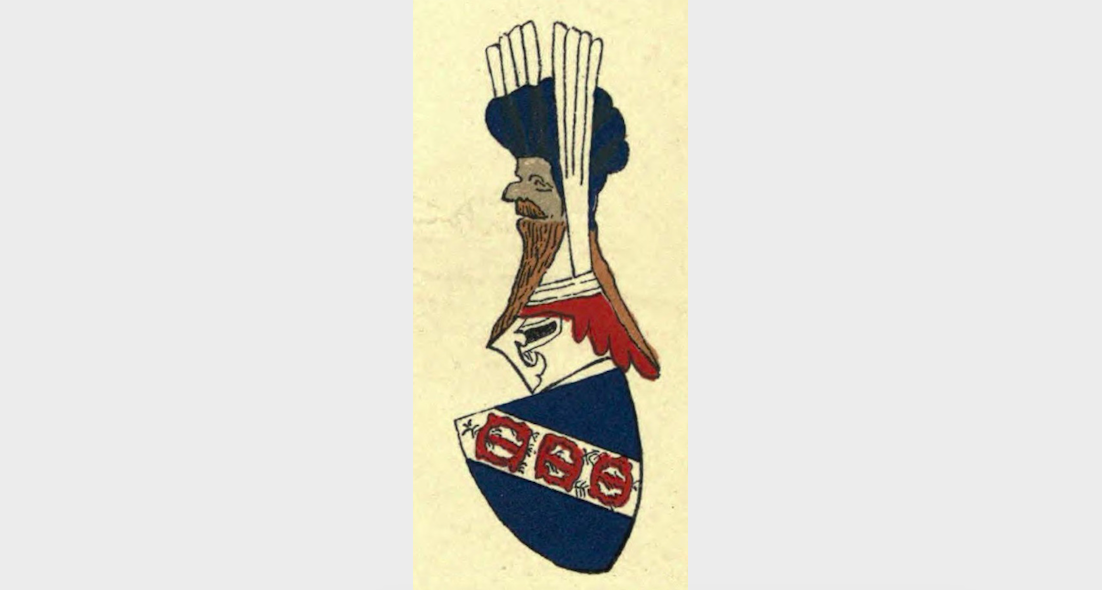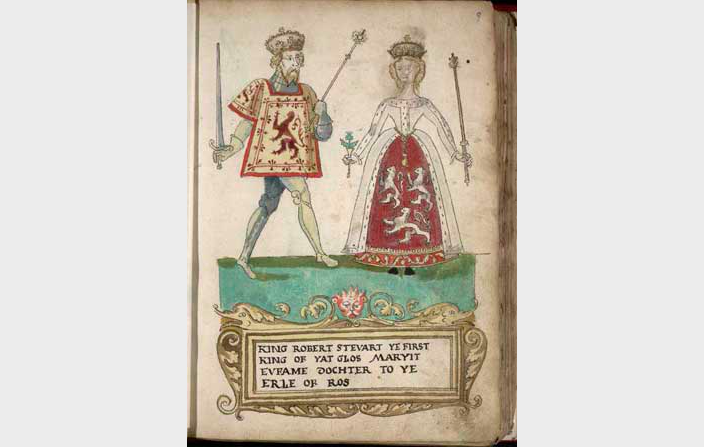Edinburgh History: A Letter to the Pope
16th Apr 2021
In this series, we tell the stories of a range of characters from Scottish history. In all of them will be the question, "If we could ask... what would the answer be?" Sometimes the answer will be factual, and sometimes it will be very human. Sometimes you may know the answer, and at other times you may be astonished. We invite you to explore our second character.
The Fascinating Tale of an Historical Letter to the Pope
Written by Mercat Tours International Storyteller Margaret Hubbard
Euphemia, Countess of Buchan, wrote to the Pope in the 14th Century, requesting a divorce, citing as the reason her husbands’ abusive behaviour. How on earth did this come about? How did the letter reach the Pope? Presumably he did not collect it at the door, so how did such a request ever land on his desk?
My question to Euphemia is this: What drove you to this desperate measure, and what possible chance of success did you imagine you would have?
Euphemia was born somewhere around 1346, the only child of the Earl of Ross. Her first language was Gaelic, and at her home in the Highlands she enjoyed the life of a Highlands landowner. Her father, however, fell out of favour with King David II and was stripped of his land.
Euphemia was sent to her aunt in Edinburgh, who was married to a prominent figure in the royal establishment. From her Highlands life she moved into that of Edinburgh courtly society – musicians, jugglers, feasting, and knights in shining armour. Instead of the old Celtic festivals of Beltane and Lammas, in Edinburgh it was Christmas, with Yuletide gifts of spices and velvets. Unsurprisingly, it turned the head of this young woman.
Euphemia’s First Marriage

At the age of 20 she married a knight returned from the Crusades. It was an arranged marriage of course, but one in which she and her husband Sir Walter Leslie actually liked one another. On her marriage, the land which her father had been stripped of was entitled to her on her father’s death.
With this, Euphemia had her first emotional struggle. Her upbringing had taught her loyalty to her father until marriage, but in the moment of this transition, she found herself benefitting at the expense of her father.
As was the custom with titled men, he had a mistress, but as long as she was kept out of sight, wives were trained to overlook this. After her father died, Sir Walter took over running the vast estate which then belonged to Euphemia. At a castle north of Inverness, she brought up their two children. Ten good years they were, and then Sir Walter died.
Euphemia found herself a widow at 36 years of age, with a huge estate. In Scotland at the time, widows were permitted to choose their next husband. What a choice she made!
Euphemia’s Second Marriage

Alexander, youngest son of King Robert II was known as the Wolf of Badenoch by his enemies in the south. Badenoch is the area next to Ross where she was Countess. By this marriage, royal power was extended across an unruly area. On their marriage, they would be Earl and Countess of Buchan, a vast area of land.
Wolves are fascinating animals. They mate for life. So did Alexander, but not with his wife. They are clever. So was he for sure. They do not tolerate weakness. Definitely him. He was an aggressive leader of the pack.
Euphemia had not seen this. What she fell in love with was a huge man, unmarried at 40, wild and dangerous. Walter had been a courtly knight, much older than her, adhering to the rules of chivalry. He was a very good dancer. The Wolf of Badenoch was everything Walter had not been. Euphemia fell for this new excitement. Very quickly they were married.
Almost immediately after the marriage, Euphemia learned that Alexander had a mistress and five sons. Mariota Athyn had been in his life for many years, but she was low born, and if he married her he would lose his royal position.
Perhaps Euphemia could have managed her disappointment and jealousy if Mariota had been kept at a distance, but no – Alexander moved her onto their estate for convenience. To begin with, he lived between both women, and then he deserted Euphemia altogether.
At this point, she began to fear for her life, and for the lives of the children she had brought with her into her second marriage. Alexander controlled his vast lands with a fierce band of highland mercenaries, a number of whom were in her castle. She was a prisoner.
Terrified, she turned to the Church. The Bishop of Moray ruled that Alexander had to return to her. In 1390 Alexander responded by burning Elgin Cathedral, the seat of the Bishop, all its churches and swathes of the town. The bishop then excommunicated him. This was the ultimate punishment, as it reached beyond the grave. An excommunicated person could not have absolution, so would die with all his sins on his head, and thus could not be admitted to Heaven.
However, the Bishop pronounced that if Alexander Stewart sought absolution in front of the high altar in Perth, and paid for all the damage he had caused in Moray, the edict on excommunication would be lifted. This came at the price of public humiliation, the news of which was carried throughout the whole of European Christendom. Alexander Stewart knuckled under on his knees in sackcloth.
However, Euphemia was not assuaged

It was at this point that she wrote to the Holy Father. In 1392 she petitioned Pope Clement VII for a separation. She simply did not want her husband back, and endure more suffering.
What drove her? Humiliation or hurt? Had she come to hate him? Did she despise him for his about turn in seeking absolution? Or had she finally moved past him and just wanted some calm in her life?
Perhaps it was about security. She needed to ensure a roof over her head and surety for her children. Sole control of her land would give her this. If we could ask her this question, her answer might be some or all of these factors. For sure she was desperate. Divorce meant loneliness ahead. The scandal of divorce for women meant she would not marry again.
She had a choice – stay in a marriage, frightened and abandoned, or seek a way out into empty years ahead?
Writing that letter displayed immense courage. There was also a further risk of total humiliation. The Pope could have ignored her letter, or replied ordering her to put up with the situation. After all, her husband had bent to the will of the Bishop. A second, and much more brutal emotional struggle for her.
She may have had little expectation of success, which serves to indicate just how desperate she was. But no – Pope Clement wrote back saying that as ‘the marriage has been the cause of war, plundering, arson, murders and many other damages and scandals, and it is likely that more will happen if they remain united’, Euphemia was granted a separation followed by a divorce.
She lived her last years in seclusion, the object of 14th Century hate mail, and when she died in 1395 she was buried in Fortrose Cathedral.

